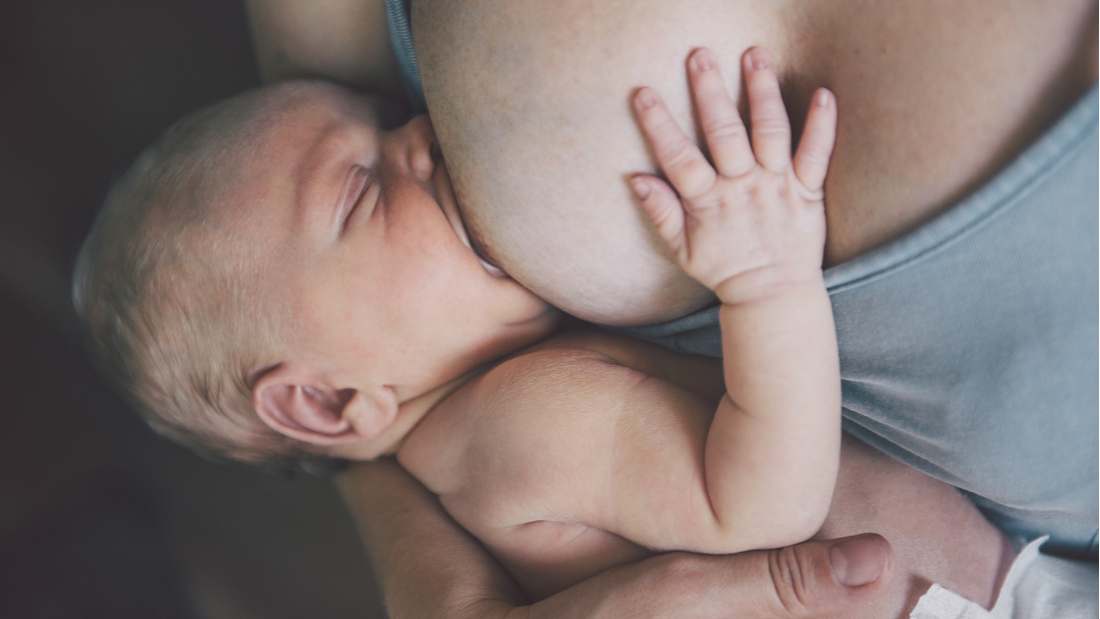
Could lab-grown breast milk create more problems than it solves?
A recent article in The Guardian, written by Jenny Kleeman – author of Sex Robots & Vegan Meat: Adventures At The Frontier of Birth, Food, Sex & Death, explored the intriguing innovation of lab-grown breast milk; the creation of Dr Leila Strickland which resulted from the difficulties she experienced when trying to breastfeed her son.
Like many mothers, the PhD level cell biologist from Stanford University spent months struggling to successfully breastfeed her baby only to relent and finally accept that it was not working for her. However, despite her acknowledgement that bottle-feeding was ultimately the best solution for her situation, she knew that formula milk, based on cow’s milk, didn’t offer quite the same range of nutrients and benefits as breast milk.
This is why, more than a decade later, she decided to combine her expertise as a cell biologist with her experiences as a mother struggling to breastfeed. The result? A startup called “Biomilq”; a company that cultures breast cells in a laboratory to create breast milk via a process known as “cellular agriculture”.
Biomilq has received a $3.5million investment from Bill Gates and, according to The Guardian, Dr Strickland’s company, along with other disruptors in the non-formula baby-milk sector, could revolutionise the infant formula industry, perhaps even killing it off altogether.
According to Dr Strickland, the laboratory-based breast milk would not only be more nutrient-rich for humans than the cow-based formula equivalent, it would also have a significantly smaller carbon footprint, making it ideal for an age in which ecological concerns must be considered a priority.
Dr Strickland says that the idea for lab-based breast milk began when she saw Maastricht University’s Mark Post serve up a lab-grown hamburger on live television. She then moved on to performing experiments with her husband in a rented lab space, initially using mammary cells from cows before moving onto human mammary cells.
In 2019, Dr Strickland recruited Michelle Egger to take over the business development side of the endeavour and it soon began to attract attention – and, crucially, the investment from Bill Gates.
Growing concerns
However, certain commentators say that lab-grown breast milk is likely to become yet another issue for mothers who are desperately attempting to do everything right for their baby. And lab-grown breast milk will never be able to replicate some of the most important functions of the human breast – for instance, it won’t be able to deliver antibodies or change in accordance to a baby’s individual needs.
Joan Wolf, author of “Is Breast Best?” and associate professor of women’s and gender studies at Texas A&M University, said that widespread availability of lab-grown milk could merely create another set of worries for mothers as each type of milk will likely be grown possessing different qualities and negative attributes. And this in turn could once again reinforce the notion that actual breastfeeding is all-important.
Questions are also being asked about the impact of a breastfeeding alternative on the sections of society that already have a difficult relationship with breastfeeding mothers. Will employers still be willing to provide for breastfeeding mothers, who may need to regularly take time out to express their milk, if there is a so-called viable alternative? And just at the point when breastfeeding in public is, hopefully, being more widely accepted, could a bottled-milk alternative mean that mothers are, once again, made to feel ashamed of their wish to breastfeed their babies unless it’s done behind closed doors in their own time.
Dr Strickland says that the development of her product is not about providing an alternative to breastfeeding. She argues instead that it aims to acknowledge the manifold associated challenges preventing women from exclusively feeding their babies on breast milk for the first six months of life (the World Health Organization current recommendation) and addresses the fact that formula milk made from cows is a trade-off which can never have the right nutritional composition for humans. She says her product is “women-owned, science-led and mother-centred” and could provide a “little boost” to women who want to breastfeed, but can’t.
For information about breastfeeding, visit our dedicated breastfeeding section, which also contains information on choosing to end breastfeeding and how to bottle feed your baby.


